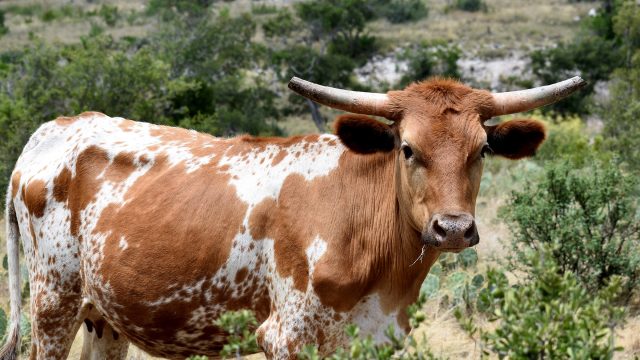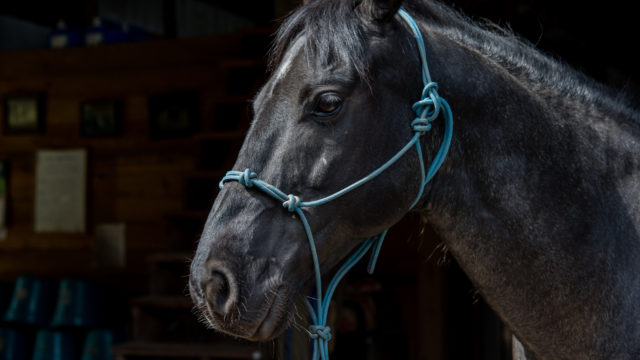
Washington State Supreme Court Rules Animal Cruelty Can Be a Crime of Domestic Violence
State v. Charmarke Abdi-Issa
Introduction
On February 8, 2022, the Washington State Supreme Court issued a decision in the case State v. Charmarke Abdi-Issa, holding that animal cruelty could be designated a crime of domestic violence, and that an animal’s guardian could be considered a victim of the crime. The Animal Legal Defense Fund submitted an amicus curiae brief in this case, and several arguments raised in the brief were cited in the Court’s decision.
Victim background
In 2018, Julie Fairbanks was the guardian of a 7-year-old ‘chiweenie’ (half Dachshund, half chihuahua) named Mona. Fairbanks doted on Mona, spoiling her and taking her everywhere, and referred to Mona as her “companion” and her “baby.” Fairbanks and Abdi-Issa dated for several months. During that time, Abdi-Issa frequently became angry and hateful. He tried to control Fairbanks’ relationship with Mona, and threatened to kill both on two occasions. Outside of Fairbank’s presence, Abdi-Issa had also allegedly been physically abusive to Mona at least twice. Once after leaving Abdi-Issa and Mona alone in a room together, Fairbanks returned to find Mona limping. On another occasion, Abdi-Issa and Mona were alone together in a car, and when Fairbanks returned Mona had two large gashes on her head. In both instances, Abdi-Issa claimed Mona had injured herself.
Facts of the offense
On October 17, 2018, Abdi-Issa and Fairbanks were sitting in a parked car in downtown Seattle. Over Fairbanks’ objections, Abdi-Issa took Mona for a walk so that he could “bond” with Mona. Fairbanks said she felt powerless to stop him. A short time later, Abdi-Issa called Fairbanks claiming Mona had slipped out of her harness and disappeared. He refused to tell Fairbanks where they were, and Fairbanks heard Mona yelp twice in the background. Around the same time, two passers-by heard Mona yelping loudly in intense distress. They followed the noise to a bank parking lot, where they saw Abdi-Issa beating Mona, punching the 12-pound dog in a brutal stabbing motion. Each time Abdi-Issa struck Mona, she made a “screeching, screaming, pained, awful sound.” Abdi-Issa started kicking Mona as hard as he could, sending Mona flying into some nearby bushes. He continued to hit Mona and her cries went from “wild, painful sounds to silence.” The witnesses tried to stop Abdi-Issa but he threatened them, saying “do you want some?” The witnesses called 9-1-1, and when police arrived they found Mona barely alive in the bushes, blinking slowly and softly whimpering. The police transported Mona to a nearby veterinary hospital where she died soon after arriving, before Fairbanks could reach her. One of the witnesses in this case was traumatized by what she had seen; she suffered a panic attack that night, and continued to have flashbacks in the following weeks, and was triggered whenever she heard a high-pitched yelping noise that reminded her of Mona’s screams.
Trial Court ruling
At trial, Abdi-Issa was convicted of animal cruelty in the first degree, which carries a maximum sentence of 12 months’ incarceration. The jury additionally applied a sentence-enhancing factor, finding that because there was “destructive and foreseeable impact on someone other than the victim,” the defendant should be sentenced to an additional 6 months’ incarceration, for a total of 18 months. The trial court considered both Mona and Fairbanks to be “victims” in this case, and found that the “destructive and foreseeable impact” occurred to the witness who was traumatized by the crime. The jury also assigned a domestic violence designation to the conviction. This designation was not an additional charge or crime, but rather was a tag or classification added onto the animal cruelty conviction, flagging it as a crime of domestic violence. Domestic violence designations are intended to ensure these cases are taken seriously by courts, and to ensure that victims receive the “maximum protection from abuse which the law… can provide.” (Wash. Rev. Code § 10.99.010). Here, the designation allowed the court to give Fairbanks a protection order preventing Abdi-Issa from approaching or contacting her. Abdi-Issa appealed, arguing that animal cruelty is a “victimless crime” and that therefore the sentence enhancement and domestic violence designation were inapplicable.
Who is a “victim”?
The question of who is a “victim” in this case is a deceptively simple one. Intuitively, we know the individuals who suffered as a result of this crime and who deserved justice were Mona and Fairbanks. Therefore, in the colloquial sense of the word, Mona and Fairbanks were both victims of this crime. However, the legal issues in this case were governed by Washington’s Sentencing Reform Act, a piece of legislation which has a specific definition of the term “victim.” That definition states that a “victim” is “any person who has sustained emotional, psychological, physical, or financial injury to person or property as a direct result of the crime charged.” (Wash. Rev. Code § 9.94A.030). Because the definition uses the word “person,” and because animals have yet to be recognized as legal persons in Washington State courts, only human beings may be termed “victims” for the purpose of the Sentencing Reform Act. Therefore Mona, despite clearly being the one who suffered most in this case, was not legally considered a “victim” for the specific issues in this case, brought under the Sentencing Reform Act.
Appellate Court Holding
The Appellate Court agreed in part with Abdi-Issa, and held that there was no victim in this case for the purpose of the Sentencing Reform Act. Because Mona is a dog, the Court held she cannot qualify as a victim – an unfortunate, but still legally sound decision given the limits of the existing statute. When asked whether Fairbanks was a victim of this crime, the Appellate Court engaged in a convoluted—and ultimately misguided—line of logic. The Court recognized that animal cruelty laws are intended to primarily protect animals (even though animals cannot be “victims” under the Sentencing Reform Act). The Court noted that animal cruelty laws are not enacted in order to protect an animal owner’s interest, because if a person abuses their own animal, they can be convicted of animal cruelty. So clearly, the harm addressed by animal cruelty crimes is primarily the harm to the individual animal, not the animal’s owner. Therefore, the court reasoned, an animal’s owner is not the victim of animal cruelty crimes. The Appellate Court did acknowledge that Fairbanks had a property interest in Mona, but said that if the State wanted to position Fairbanks as a victim, they should have charged the defendant with malicious mischief (Washington’s law prohibiting destruction of personal property) because that crime is specifically intended to protect property owners. Because the Court held that there was no “victim” in this case, the Court found that the sentence enhancement (which the trial court had applied because there was “destructive and foreseeable impact to someone other than the victim”) was inapplicable. The Court likewise held that because there was no victim, this was not a crime of domestic violence. The Appellate Court upheld the conviction and the 12-month carceral sentence, but reversed the additional 6-month sentence enhancement and the domestic violence designation, and with it, Fairbanks’ order of protection.
Appeal to Washington Supreme Court
The State of Washington appealed the Appellate Court Decision to the state’s highest court, the Washington Supreme Court, who would have the final word on the issues presented. The fundamental question on appeal was whether or not Fairbanks was a victim of this crime. If the answer was yes, the secondary questions were (1) whether this was a crime of domestic violence, qualifying for a domestic violence designation; and (2) whether there was a destructive and foreseeable impact on someone other than Fairbanks, the victim. The Washington Supreme Court answered all those questions in the affirmative, holding that Fairbanks was a victim of the crime, that this was a crime of domestic violence, and that there was a foreseeable impact on someone other than Fairbanks (in this case, the witness who was traumatized by the brutal killing she had seen). The Animal Legal Defense Fund, joined by the Association of Prosecuting Attorneys, wrote an amicus brief to help the Washington Supreme Court navigate some these issues.
Fairbanks is a victim of the crime of animal cruelty
As previously explained, the Washington Sentencing Reform Act defines a victim as “any person who has sustained emotional, psychological, physical, or financial injury to person or property as a direct result of the crime charged.” (Wash. Rev. Code § 9.94A.030). The facts of this case clearly showed that Fairbanks suffered emotional and psychological harm as a result of this crime. Mona was her beloved companion animal, her “baby.” Mona’s death was devastating to Fairbanks, and Mona was legally Fairbanks’ property. The Animal Legal Defense Fund’s amicus brief pointed to the ample research into the human-animal bond, showing that humans regard their companion animals as members of the family and are severely and cognizably negatively impacted when their companion animals die. Therefore The Washington Supreme Court rightly recognized that Fairbanks was a victim in this case.
This is a crime of domestic violence
Washington’s Criminal Procedure Code defines “domestic violence” as including but not limited to a specific list of crimes, when that crime is committed by a family or household member against another family or household member, or by one intimate partner against another. (Wash. Rev. Code § 10.99.020). That list of crimes contains offenses such as assault, stalking, and burglary. The list does not specifically mention animal cruelty, but the statute specifically states that this list is not meant to be all-inclusive. Animal cruelty is precisely the type of crime which this statute is designed to address. Hundreds of studies over the past forty years have documented The Link between animal cruelty and domestic violence. Too often, a relationship with an animal is used as leverage in acts of domestic violence, with abusers harming or threatening animals in order to torment or control human victims. The Animal Legal Defense Fund’s amicus brief provided a summary of the extensive research on The Link to the Washington Supreme Court, who in turn cited that same research in their final opinion in holding that this case was in fact a crime of domestic violence and the designation was properly applied. Notably, two justices wrote a separate opinion, concurring on this issue. In that concurring opinion, the authoring justice stated she did not believe the classification of animals as “personal property” was necessary to hold that animal cruelty can be a crime of domestic violence, and that the author did “not read any of the majority’s arguments to reject other arguments about the legal status of animal companions more generally.” This note was not part of the majority opinion and is therefore not binding on lower courts, but it is useful dicta to point to when arguing for animals’ improved legal status.
Is there a “destructive and foreseeable impact on someone other than the victim”?
As previously stated, the trial court found that there was a “destructive and foreseeable impact on someone other than the victim,” which was a sentence enhancement applied to add an additional six months’ incarceration to Abdi-Issa’s sentence. The Washington Supreme Court agreed, holding that Fairbanks is a victim of this crime, and that the crime had a “destructive and foreseeable impact” on the witness who is traumatized by the brutal killing she witnessed. This was, however, the only issue where there was some disagreement within the Washington Supreme Court. Two justices filed a separate opinion, concurring with all of the majority’s holdings except this one. The dissenting piece of the separate opinion argued that while the witness suffered destructive impact, that impact was not “foreseeable.” They argued that this sentence enhancing factor is meant to apply when the defendant knowingly committed an abhorrent or violent act in front of another person, and could foresee the destructive impact that would have. In this case, Abdi-Issa committed his crime in a public place, a bank parking lot, but he did not do so knowing that any passers-by would see his crime and be affected by the violence they would witness. The Animal Legal Defense Fund declined to address this particular issue of foreseeability in the amicus brief, as it was outside the scope of the Animal Legal Defense Fund’s area of focus.
The issue of whether or not animals can ever be considered a victim was not in front of the Washington Supreme Court in case.
The issue of whether or not an animal could ever be considered a victim was not an issue the Washington Supreme Court addressed in this case. In their petition to the Court for review, the state had already conceded that Mona was not a “victim” for the purposes of the Sentencing Reform Act. Because both the State and the defendant agreed on this issue, it was not part of the case once it reached the Washington Supreme Court. However, the Animal Legal Defense Fund still dedicated a significant portion of the amicus brief to this issue in order to avoid damaging precedent that could affect animals’ legal status in future cases. In the amicus brief, the Animal Legal Defense Fund noted that the definition in the Sentencing Reform Act does not preclude animals from being considered victims in other legal contexts, when issues arise under different areas of the law. Indeed, in the two states where animals are recognized as crime victims, Colorado and Oregon, that status recognition was achieved through litigating issues before the state supreme courts. (Oregon v. Nix, 334 P.3d 437 (Or. 2014), Oregon v. Fessenden, 355 Or. 759 (2014); Colorado v. Harris, 405 P.3d 361 (Colo. App. 2016)). Those cases involved issues where there was not a statutory definition limiting how the courts applied the term “victim.” The Animal Legal Defense Fund noted in its brief that similar cases may yet still arise in Washington and other states, and asked the Washington Supreme Court to be mindful of this issue when drafting their opinion. Had the Washington Supreme Court agreed with the Court of Appeals and proclaimed that animal cruelty was a “victimless” crime, that dicta could have been used to the detriment of animals in cases where the issue of animal victimhood was properly before the court. Because this issue was not properly before the Washington Supreme Court in this case, the Animal Legal Defense Fund asked the Court to refrain from ruling on this issue at this time. The Washington Supreme Court did just that, and did not address the issue of whether Mona was a crime victim in this case. The Court’s opinion contains small rays of hope in this area, referring to Fairbanks as “a” victim of animal cruelty, not “the” victim. These carefully worded phrases avoid the implication that animals can never be considered victims of animal cruelty – preserving that fight for another day.
The Washington Legislature should amend the Sentencing Reform Act to recognize animals like Mona as victims
The Court of Appeals did get one small part of their reasoning right – animal cruelty laws are primarily designed to protect animals, as individuals, from pain and suffering. Animal cruelty laws may also function as a way of protecting animal’s owners or guardians from emotional and financial harm, and they might also protect society generally from violence. But the primary purpose is to protect animals. The natural conclusion, therefore, is that animals should legally be considered victims of animal cruelty. Unfortunately, the definition of “victim” in Washington’s Sentencing Reform Act currently does not allow animals to be considered victims for issues like deciding sentence enhancing factors. The Legislature enumerated all of these sentencing factors, many of which consider the victim’s experience, in order for courts to craft appropriate and proportional sentences in criminal cases. The fact that the Sentencing Reform Act doesn’t recognize animals as victims means that many of these sentencing factors cannot be considered in animal cruelty cases where there is not a human victim. Therefore the sentences arising out of animal cruelty cases largely fail to account for many factors that the Washington Legislature deemed valuable. In order to remedy this issue, the Washington Legislature should amend the Sentencing Reform Act in order to properly recognize animals as victims for the purpose of sentencing in animal cruelty cases.
Conclusion
The Washington Supreme Court’s decision in State v. Abdi-Issa is an important acknowledgement of the strength of the human-animal bond, and of The Link between animal cruelty and domestic violence. The Animal Legal Defense Fund is proud to have partnered with the Association of Prosecuting Attorneys in submitting an amicus curiae brief in this case, helping the Washington Supreme Court reach this decision. However, there is still work to be done before animals are granted the recognition as victims that they deserve.
Donate to Protect Animals
Help animals win the legal protections they so desperately need and deserve, and ensure they have an advocate in courtrooms and legislatures across the country.
Focus Area
How We Work
Related
-
$5,000 Reward for Information Regarding Six Killed and Mutilated Cows in Three Texas Counties
Cows were killed in Madison, Brazos, and Robertson Counties, Texas.May 3, 2023 Press Release -
Animal Legal Defense Fund Will Seek Justice for Abused Horse in Oregon’s Highest Court
Following the dismissal of Justice’s case upheld on appeal, the Animal Legal Defense Fund continues to seek accountability under the law.September 1, 2022 Press Release -
Winter Weather Advisory: Keep Animals Safe and Warm This Winter
The Animal Legal Defense Fund, the nation’s leading legal advocacy organization for animals, has tips for how you can make sure your companion animals sail through even the worst weather winter has to offer.




